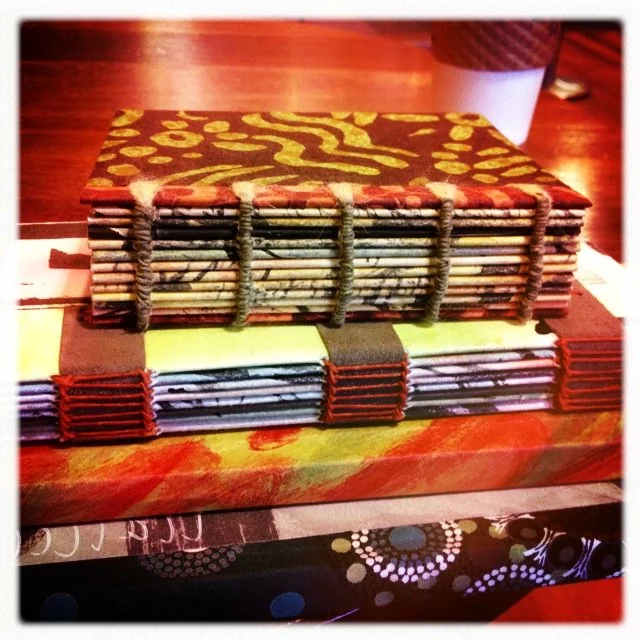Welcome to
DAGGYLAND
Should I Self-Publish My Nonfiction Business Memoir or Find a Traditional Publisher?
Every couple of months I get a letter from someone asking if I’ll ghost-write their book. Typically, my correspondents are white, wealthy, business dudes. They’ve made something of themselves, and they want to share their hard-earned wisdom with the world. They think a book is the ticket, but they have no idea where to start. Someone told them they need a ghostwriter, and they start writing people like me. I got one of those emails recently, but this time it had a more interesting wrinkle. Besides asking about my services, the guy also wondered aloud if he should just self-publish the damn thing, and not bother trying to get a “real” publisher. This was a switch. Here’s why…
TWEET ME
I’ve been ghostwriting so long that I often feel like I’m living inside the sausage factory that is modern American publishing. Unless you’ve spent time inside the machine, you are likely to think that it’s a really big deal to get a book deal. It can be, but if you spent any time with authors you’ll quickly find that most of them hate the way their publisher handled their last book. Not enough promotion. Not enough support. Not enough…anything.
A few months ago, I told the story of the most egregious example of publisher-fail I’d ever seen. And this was for a book that the publisher paid six figures for…
- January 2026 (2)
- December 2025 (6)
- November 2025 (7)
- October 2025 (5)
- September 2025 (1)
- August 2025 (4)
- July 2025 (4)
- June 2025 (3)
- May 2025 (2)
- April 2025 (3)
- March 2025 (1)
- February 2025 (1)
- January 2025 (2)
- December 2024 (2)
- November 2024 (3)
- October 2024 (1)
- September 2024 (2)
- August 2024 (1)
- July 2024 (2)
- June 2024 (1)
- May 2024 (2)
- April 2024 (1)
- March 2024 (1)
- February 2024 (4)
- January 2024 (6)
- December 2023 (9)
- November 2023 (11)
- October 2023 (11)
- September 2023 (23)
- August 2023 (18)
- July 2023 (7)
- June 2022 (1)
- November 2021 (3)
- September 2021 (1)
- August 2021 (1)
- May 2021 (1)
- April 2021 (3)
- March 2021 (1)
- February 2021 (1)
- January 2021 (3)
- December 2020 (2)
- November 2020 (1)
- October 2020 (2)
- September 2020 (2)
- August 2020 (1)
- July 2020 (2)
- June 2020 (2)
- May 2020 (3)
- April 2020 (1)
- February 2020 (2)
- January 2020 (1)
- December 2019 (4)
- November 2019 (1)
- October 2019 (1)
- July 2019 (3)
- June 2019 (7)
- May 2019 (14)
- April 2019 (12)
- March 2019 (9)
- February 2019 (12)
- November 2017 (1)
- August 2017 (1)
- June 2017 (1)
- April 2017 (2)
- January 2017 (2)
- December 2016 (2)
- November 2016 (1)
- July 2016 (3)
- June 2016 (2)
- March 2016 (1)
- February 2016 (2)
- December 2015 (1)
- October 2015 (1)
- September 2015 (3)
- August 2015 (2)
- July 2015 (3)
- June 2015 (1)
- May 2015 (3)
- April 2015 (3)
- March 2015 (3)
- February 2015 (4)
- December 2014 (2)
- October 2014 (4)
- September 2014 (2)
- July 2014 (2)
- June 2014 (2)
- May 2014 (3)
- April 2014 (1)
- March 2014 (5)
- February 2014 (6)
- January 2014 (3)
- December 2013 (6)
- November 2013 (6)
- October 2013 (1)
- September 2013 (1)
- August 2013 (2)
- July 2013 (5)
- June 2013 (2)
- May 2013 (5)
- April 2013 (12)
- March 2013 (16)
- February 2013 (8)
- January 2013 (7)
- December 2012 (7)
- November 2012 (14)
- October 2012 (11)
- September 2012 (8)
- August 2012 (7)
- July 2012 (6)
- June 2012 (18)
- May 2012 (5)
- February 2012 (3)
- January 2012 (3)
- December 2011 (1)
- November 2011 (1)
- October 2011 (5)
- September 2011 (3)
- August 2011 (1)
- July 2011 (6)
- June 2011 (6)
- May 2011 (2)
- April 2011 (8)
- March 2011 (4)
- February 2011 (2)
- January 2011 (1)
- October 2010 (1)
- April 2010 (7)
- March 2010 (4)
- books
- denise kiernan
- The Girls of Atomic City
- Blockhead: The Life of Fibonacci
- Sleuthsayers
- Fibonacci Sequence
- Sorceress Kringle
- writing
- short stories
- signing their rights away
- literature
- Fibonacci
- signing their lives away
- Murder on Book Row
- alfred hitchcock's mystery magazine
- crime fiction
- christmas
- The Mesmerist
- ahmm
- joseph d'agnese
- freelancing
- we gather together
- ghostwriting
- thanksgiving
- book recommendations
- writers
- history
- fourth of july
- The Money Book for Freelancers
- publishing
- us history
- fiction
- holidays
- mystery fiction
- The Marshal of the Borgo
- children's books
- horror
- Jersey Heat
- sarah josepha hale
- epic fantasy
- food
- advent ghosts
- food writing
- Arm of Darkness
- the scientist and the sociopath
- july 4th
- science journalism
- asheville
- Jack Frost
- cozy mystery

